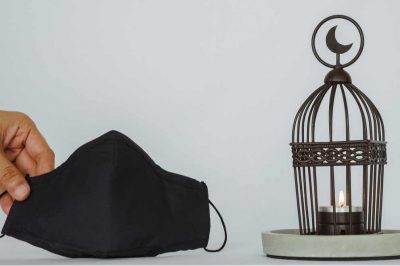Answer
In the Name of Allah, Most Gracious, Most Merciful.
All praise and thanks are due to Allah, and peace and blessings be upon His Messenger.
In this fatwa:
1- Based on consultations with doctors, experts and accredited medical studies, the argument that fasting that requires refraining from drinking liquids during the day time makes people more susceptible to COVID-19 is definitely untrue and is not founded on any scientific evidence.
2- People suffering from chronic diseases can break their fast but they should offer a Fidyah i.e. feeding one poor person per day.
Answering your question, the European Council for Fatwa and Research, states:
Based on consultations with doctors, experts and accredited medical studies, the argument that fasting that requires refraining from drinking liquids during the day time makes people more susceptible to COVID-19 is definitely untrue and is not founded on any scientific evidence.
On the contrary, many academic studies attest to the fact that fasting is a healthy practice in a number of ways.
It improves humans’ immunity needed in light of the current health situations. However, there is a concession for patients advised by doctors to avoid fasting since it postpones their recovery or leads to complications in their health situations.
Muslim jurists state that good health and freedom from diseases are prerequisites for fasting. Ibn Qudamah states,
“The scholars consensually state that in general being unwell is a genuine reason for the permissibility of not observing fasting. It is founded on the verse that reads “but if any of you is ill, or on a journey, the prescribed number (should be made up) from days later.” (Al-Baqarah 2:184)” (Al-Mughni v. 3, p. 16)
People suffering from chronic diseases should offer a Fidyah i.e. feeding one poor person per day. If it is not a chronic disease, yet one cannot observe fasting as stated by one’s doctor, one has a concession to avoid fasting but the missed number of days should be made up later on.
Acting in consistency with this concession, when its stipulations are fulfilled, represents the accomplishment of the principle of flexibility and removing hardship stated by Shariah. Allah says: “On no soul does Allah place a burden greater than it can bear.” (Al-Baqarah 2:286) Also, Allah states: “Allah intends every facility for you; He does not want to put to difficulties.” (Al-Baqarah 2:185)
Two points to remember:
First: In the case of being infected by COVID-19, one should break one’s fast because the concession is directed to you. In return, dependent on one’s case one should give Fidyah (ransom) or make up the same number of the missed days. When recovered one is to observe fasting.
Second: In light of the spread of COVID-19, Muslims should adhere to the health instructions that require social distancing, refrain from congregational Iftar and inviting others for Iftar, practiced in usual circumstances, until official authorities remove restrictions. Muslims should also adopt a well-balanced healthy diet during the month of fasting; since it reinforces one’s health and allows fasting increase one’s immunity.
Almighty Allah knows best.
Source: https://www.e-cfr.org/
